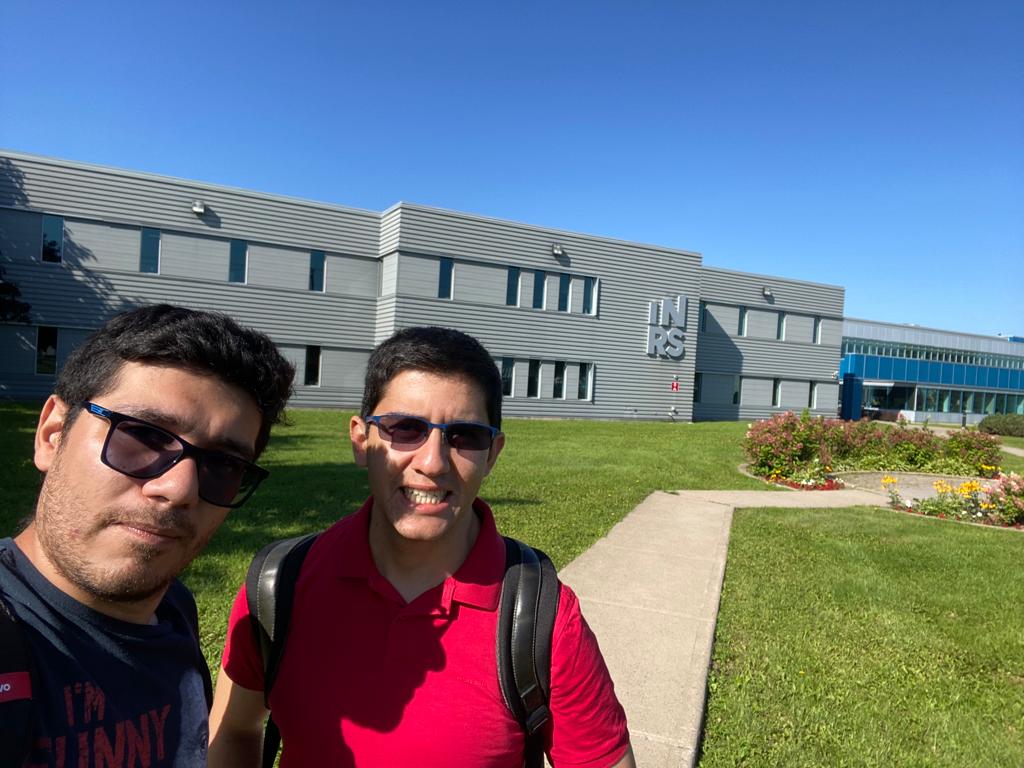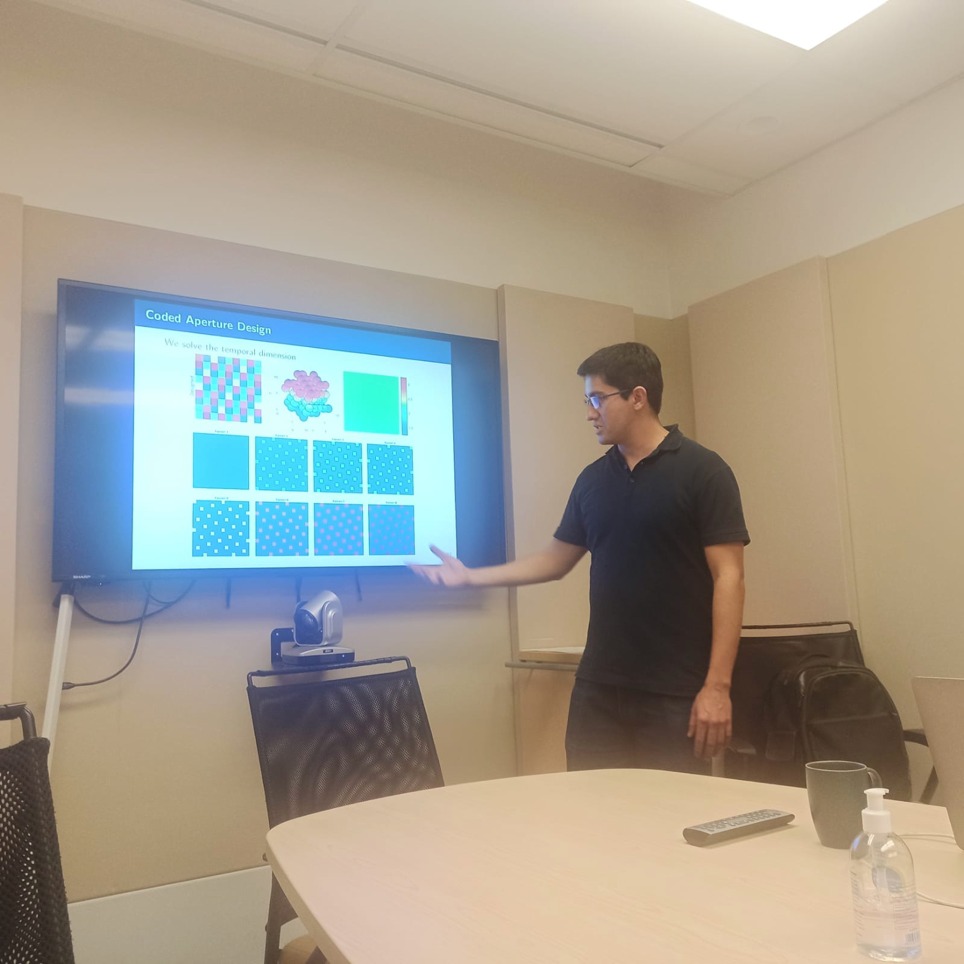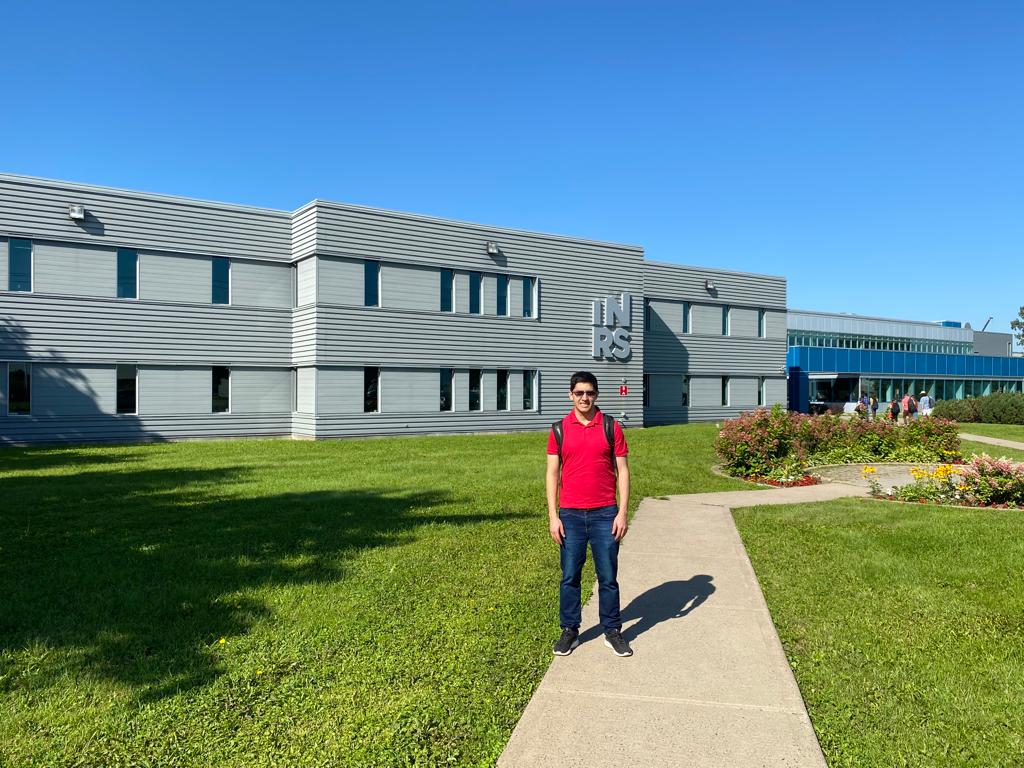Nelson Díaz, a postdoctoral researcher at Optolab, completed a research internship during his time in Canada, allowing him to start working on a new project with Dr. Jinyang Liang.
Dr. Díaz has been collaboratively working with Optolab since 2020, and in 2023, he spent three weeks at the Laboratory of Applied Computational Imaging affiliated with the Institut National de la Recherce Scientifique (INRS) at the University of Quebec in Montreal, Canada, for a research internship under the collaboration and supervision of Dr. Jinyang Liang.
Nelson had the opportunity to meet Dr. Liang, the leader of the laboratory, at the International Optical Imaging Congress held in Vancouver, Canada, focusing on computational optics and compressed sensing. Additionally, Nelson, along with two members of Optolab, Felipe Guzmán and our director, Professor Esteban Vera, are co-authors of Chapter 22 titled “Shuffled Rolling Shutter Camera” in the book edited by Professor Liang, titled “Coded Optical Imaging,” available from February 13, 2023, at this link.
Regarding his internship, he shares the following:
How did the opportunity for this internship arise?
After collaborating on the chapter of Professor Liang’s book, I requested to be received as a visiting researcher in his laboratory in Canada for three weeks. So, after attending a conference in the United States, he agreed to host me, and I went to Canada.
That’s when we began collaborating on a new research project based on a new code pattern called “Compressive Ultrafast Photography by Sphere Packing Approach” (CUPOSP).
This project is based on Dr. Díaz’s previous research, addressing the design of a multispectral filter array through optimal sphere packing, which was published in the IEEE Transactions on Image Processing.
How was your experience?
The experience was enriching as I could interact with members of the computational optics group in Montreal, Canada. I delivered a presentation on my latest published article where I designed a spectral filter array using a novel technique based on sphere packing. Additionally, as a result of the discussions, I proposed extending this approach to ultrafast image acquisition; a topic I am currently working on.
Would you recommend someone to do an internship at this institution?
I would recommend that other members of the Optolab team and the broader PUCV community visit Professor Liang’s laboratory. His computational optics group is dedicated entirely to cutting-edge research, with novel topics such as ultrafast image acquisition with applications in capturing transcendent scenes, such as tracking rays of light.



This was Dr. Nelson Díaz’s experience at the Laboratory of Applied Computational Imaging at INRS in Montreal, Quebec, Canada. There, he presented his work, immersed himself in their projects, and had the opportunity to collaborate with the professor leading the laboratory.
We will keep you informed as the research of these doctors progresses and is published, explaining the findings. Stay tuned!
